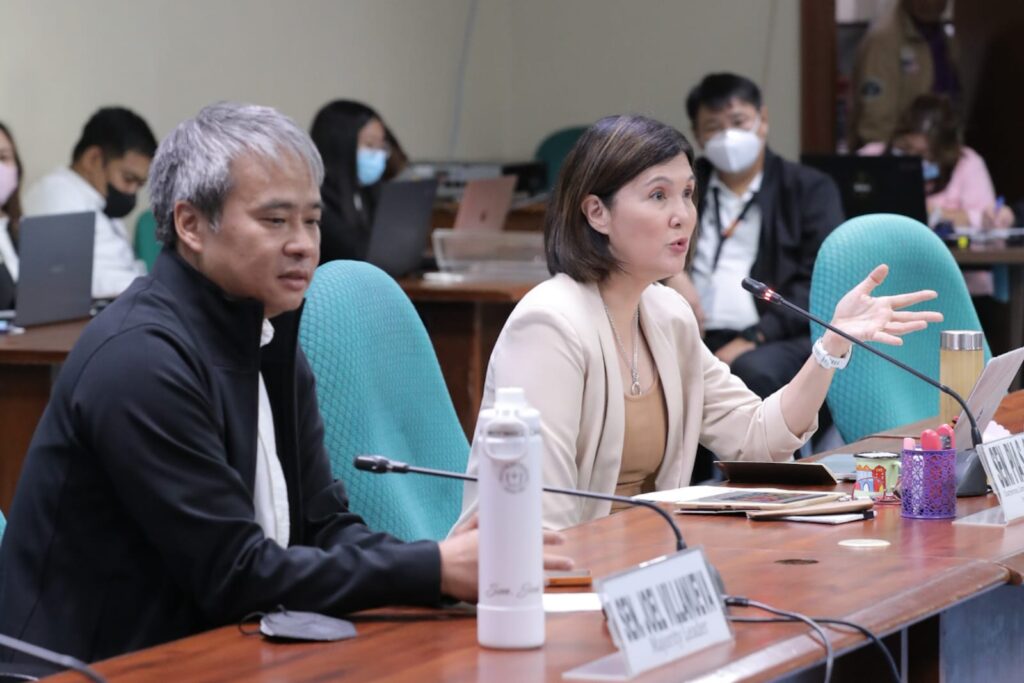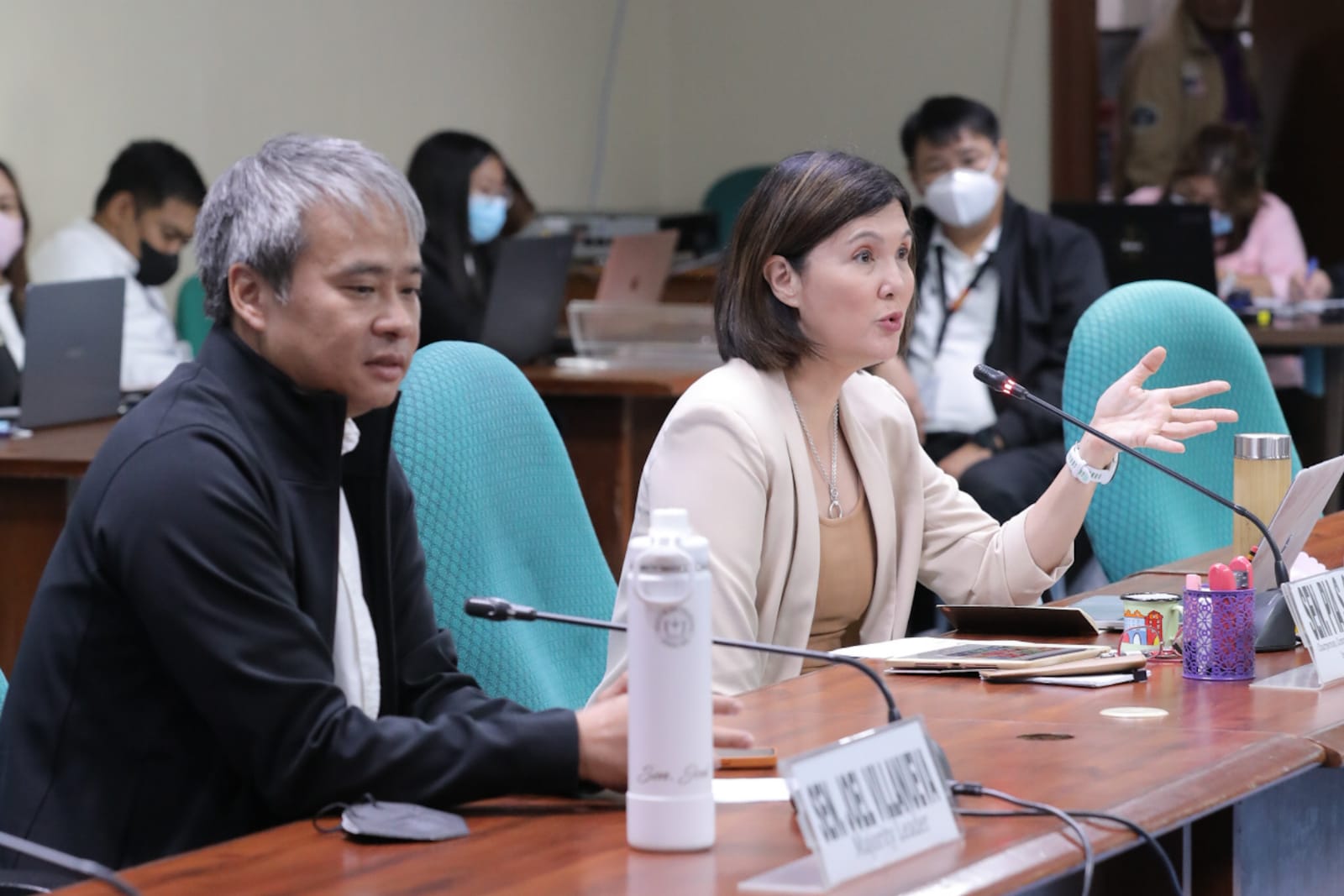Highlights of the remarks of Senator Pia S. Cayetano, Chair of the Senate Committee on Sustainable Development Goals, Innovations and Futures Thinking
Part 1
Today, we’ll discuss the progress of the country’s performance on the attainment of the Sustainable Development Goals, related to the UN 2030 Agenda for Sustainable Development.
This is probably the proper time to put on record that the Senate has had this Committee on Sustainable Development Goals for two congresses. We are one of the few in the world that has a committee on sustainable development and futures thinking. And so we really hope to be able to come up with hearings to raise awareness on the issues, and also to discuss with experts and stakeholders to find solutions to help us achieve these goals.
So specifically, the Committee was put into place precisely to track where we are with the SDGs, to prepare for various futures, and to shift our mindset to futures thinking as a major policy reform. According to the United Nations Economic and Social Commission for Asia and the Pacific [ESCAP], with the current pace in achieving the SDGs, it will take [the region] 42 years to achieve the goals. I am certain that this can be broken down. This is an average. And every country is managing their SDGs at their own pace, managing or mismanaging. But that is the finding of UNESCAP. In the Asia-Pacific region, SDG 7 on affordable and clean energy and SDG 9 on industry, innovation, and infrastructure have the most progress. Progress on SDG 13 on climate action has declined, despite the region’s vulnerability to climate change. In the report, the Philippines was identified as a regional leader in its effort in achieving SDG 12, on responsible consumption and production.
I’d like to make a side comment on this because we always try to be mindful when we are called out either for good or bad reasons. And there are usually very specific indicators for this. So yun ang mga gusto kong mapag-usapan natin. Like on the one hand, with respect to gender equality, we are very high in terms of passing laws that protect women. But on the other hand, we also know that we have our own struggles due to customs and traditions that, like many countries, keep the women in the homes because obviously, we have a commitment to families – I do too – which then makes it difficult [for women] to be in the workforce.
Part 2
I’ll go back to the importance here of gender equality and women empowerment. And we actually have 4 of the 5 in-house resource persons here who are women. Not that I want it to be dominated. We’re looking for all the voices to be heard.
In my most recent Inter-Parliamentary Union conference, in which I represented the Senate, our topic was specifically how empowering women can help us achieve our SDGs. So I bring it to that. It is my job, and I appreciate the support that I get from the Senate leadership, to ensure that in passing the bills and the laws, we are mindful about how it affects all the other bills that are pending.
So for example, something very close to your heart, Sen. Joel Villanueva, and my heart, is the Doktor Para sa Bayan. And we are mindful that it is not just the doctors that we want to support. But that was in a way our banner bill because without the medical schools, hindi rin tayo maka-move forward. But mindful kami in all our deliberations na bago makatungtong sa medical school yun, may undergrad din yun. So kung wala rin ang supporting allied professions like nursing, medtech, therapist, occupational therapists, our need for more health human resources won’t be achieved.
In one of my hearings, which the continuation is on Wednesday, on health human resource, ang sinabi sa amin ng resource person is meron daw mga colleges na wala raw applicant ang kanilang occupational therapist dahil wala raw trabaho. Nagkatinginan kami ni Sen. Joel Villanueva na – then we are doing a horrible job because the demand for occupational therapists is very high. For them not to be able to find the jobs, there are major gaps in public and private coordination because, wow imposibleng walang nangangailangan because we know from personal experience na there is a high demand. And then after that hearing, I had a conversation with Mayor Lani [Cayetano] and ang tagal din ng city of Taguig makahanap ng occupational therapist. Tapos sasabihin sa hearing namin na wala daw demand.
I will end my introductory message by saying na I want to dig further beyond those numbers. When UNESCAP includes in its report that none of the countries in the region are on track to achieve the SDGs on time, okay that is alarming. But that is not my intention to be an alarmist. My intention is first of all, Philippines, doon muna tayo sa sariling atin. Let us celebrate the goals that we made major achievements. Why won’t we celebrate that? We should celebrate it. So both Sen. Joel and I are in the EDCOM and maraming problema, but we are identifying each one. And we want to be able to celebrate where we have moved forward or at least we can clearly agree na these are the solutions. And then we tackle the more difficult ones at the same time. So yun ang goal nitong Committee.
[Addressing the resource persons] Be prepared na if you come up with statements, we will dig further, maybe not in this hearing itself, but in future hearings. And I would like you to know, Sen. Joel, that among our resource persons are universities, not just DAP, which is represented by Dr. Lizan Calina, but also some universities that we have given funding to SDGs and Futures Thinking. So that they can also share with us. Kasi sila naman ang mas expert kaysa sa atin. Nakikinig lang po kami sa mga findings niyo, sa mga research niyo, so that we can bring it to the public’s attention and identify the proper agencies that can make this happen.
One of the jobs also we face in the Senate is to prioritize. Sometimes a bill is good, but somebody has to have the political will to say, sandali lang, there is something more urgent, more pressing. And that is a very difficult task to make. Because meron at merong masasaktan na bakit hindi binigyan ng kasing halagang importansya… I think the best example there is the approach to disaster risk. Kapag hindi natin pinondohan yun, which we started years ago, we will just be [left with] stopgap measures lang, which looks good sa public na may ginawa, pero ang mahabaang solusyon, hindi naman ginawa, which we have started to do naman talaga in disaster risk management. But ganun dapat ang approach natin sa lahat ng ito.
Part 3
So on that note, yun ang lalim ng trabaho na ginagawa po natin. And I wanted to end on the full circle of work that we’re doing. As you acknowledge na sa Central Luzon kulang pa sa ganito. But in Bulacan State University, just recently, we launched the allied health profession, may college na sila ngayon. So like I said, paano naman magiging doktor? Di mag-uumpisa ka muna sa pre-med courses. So it’s a long, long, long process, which again tayong mga andito naiintindihan natin yun. But we want the public to understand that this will really be a generational change that we are looking for.#



Leave a Reply